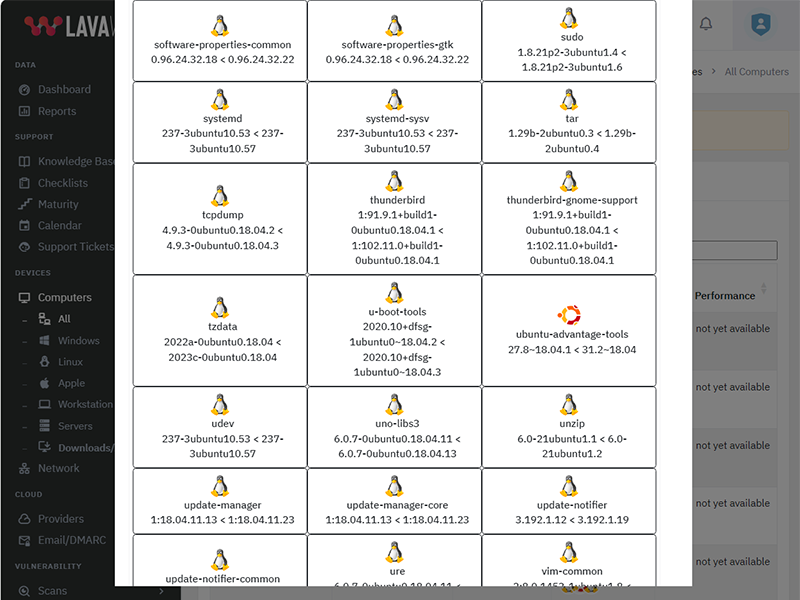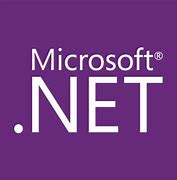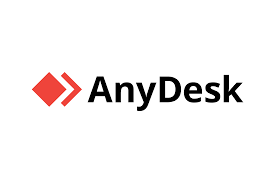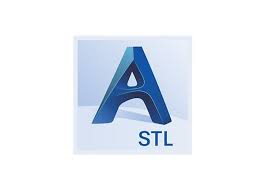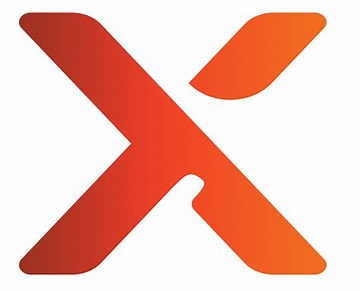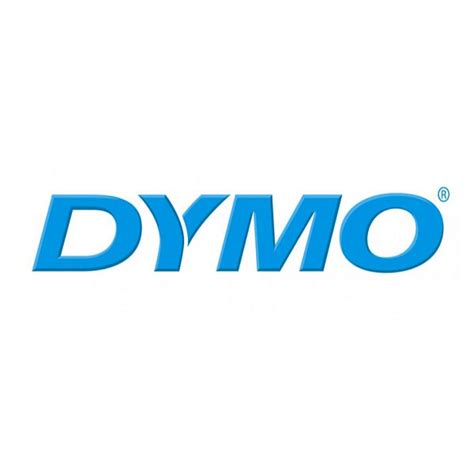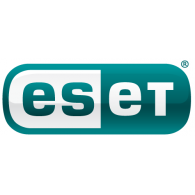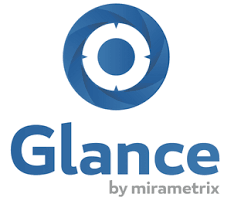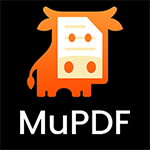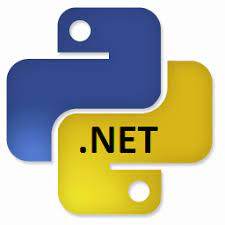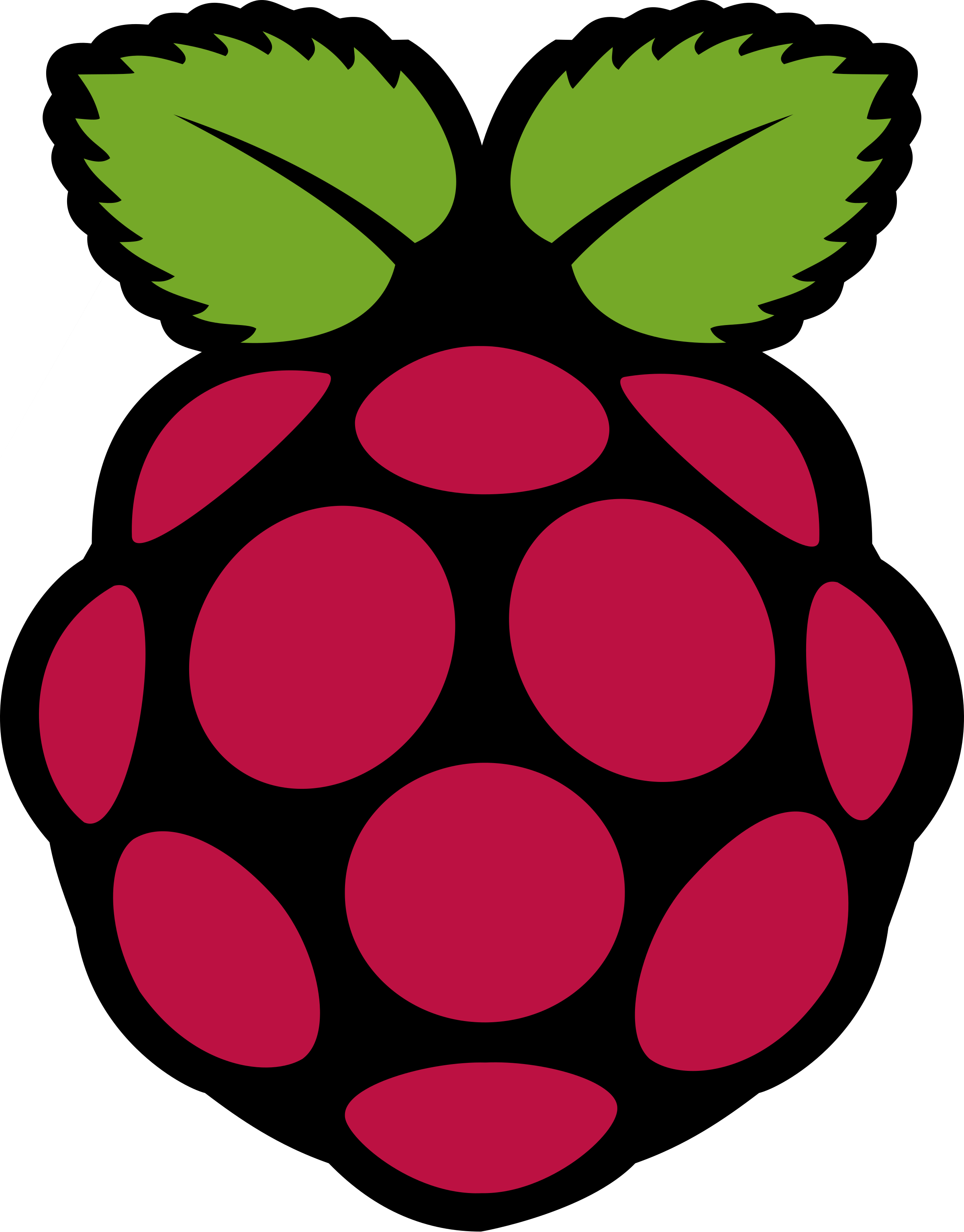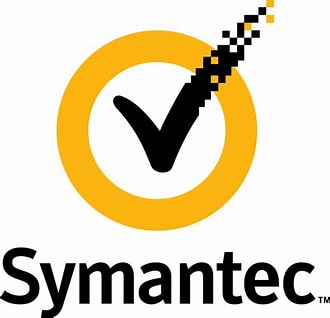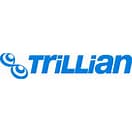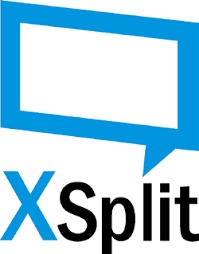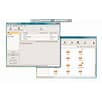
Update Zoom Workspace to version 6.7.26346
What patches are you missing?
CVE Vulnerabilities for Zoom Workspace
| CVE | Published | Severity | Details | Exploitability | Impact | Vector |
| CVE‑2023‑43588 | 2023‑11‑15 00:15:09 | MEDIUM (7) | Insufficient control flow management in some Zoom clients may allow an authenticated user to conduct an information disclosure via network access. | 3 | 4 | NETWORK |
| CVE‑2023‑43582 | 2023‑11‑15 00:15:09 | MEDIUM (6) | Improper authorization in some Zoom clients may allow an authorized user to conduct an escalation of privilege via network access. | 2 | 3 | NETWORK |
| CVE‑2023‑39206 | 2023‑11‑14 23:15:09 | HIGH (8) | Buffer overflow in some Zoom clients may allow an unauthenticated user to conduct a denial of service via network access. | 4 | 4 | NETWORK |
| CVE‑2023‑39205 | 2023‑11‑14 23:15:09 | MEDIUM (4) | Improper conditions check in Zoom Team Chat for Zoom clients may allow an authenticated user to conduct a denial of service via network access. | 3 | 1 | NETWORK |
| CVE‑2023‑39204 | 2023‑11‑14 23:15:09 | HIGH (8) | Buffer overflow in some Zoom clients may allow an unauthenticated user to conduct a denial of service via network access. | 4 | 4 | NETWORK |
| CVE‑2023‑39199 | 2023‑11‑14 23:15:08 | MEDIUM (5) | Cryptographic issues with In-Meeting Chat for some Zoom clients may allow a privileged user to conduct an information disclosure via network access. | 1 | 4 | NETWORK |
| CVE‑2023‑36539 | 2023‑06‑30 03:15:10 | HIGH (8) | Exposure of information intended to be encrypted by some Zoom clients may lead to disclosure of sensitive information. | 4 | 4 | NETWORK |
| CVE‑2023‑28596 | 2023‑03‑27 21:15:12 | HIGH (8) | Zoom Client for IT Admin macOS installers before version 5.13.5 contain a local privilege escalation vulnerability. A local low-privileged user could exploit this vulnerability in an attack chain during the installation process to escalate their privileges to privileges to root. | 2 | 6 | LOCAL |
| CVE‑2023‑22883 | 2023‑03‑16 21:15:13 | HIGH (7) | Zoom Client for IT Admin Windows installers before version 5.13.5 contain a local privilege escalation vulnerability. A local low-privileged user could exploit this vulnerability in an attack chain during the installation process to escalate their privileges to the SYSTEM user. | 1 | 6 | LOCAL |
| CVE‑2022‑28768 | 2022‑11‑17 23:15:16 | HIGH (8) | The Zoom Client for Meetings Installer for macOS (Standard and for IT Admin) before version 5.12.6 contains a local privilege escalation vulnerability. A local low-privileged user could exploit this vulnerability during the install process to escalate their privileges to root. | 2 | 6 | LOCAL |
| CVE‑2022‑28766 | 2022‑11‑17 23:15:15 | LOW (3) | Windows 32-bit versions of the Zoom Client for Meetings before 5.12.6 and Zoom Rooms for Conference Room before version 5.12.6 are susceptible to a DLL injection vulnerability. A local low-privileged user could exploit this vulnerability to run arbitrary code in the context of the Zoom client. | 2 | 1 | LOCAL |
| CVE‑2022‑28764 | 2022‑11‑14 21:15:13 | LOW (3) | The Zoom Client for Meetings (for Android, iOS, Linux, macOS, and Windows) before version 5.12.6 is susceptible to a local information exposure vulnerability. A failure to clear data from a local SQL database after a meeting ends and the usage of an insufficiently secure per-device key encrypting that database results in a local malicious user being able to obtain meeting information such as in-meeting chat for the previous meeting attended from that local user account. | 2 | 1 | LOCAL |
| CVE‑2022‑28763 | 2022‑10‑31 20:15:13 | HIGH (9) | The Zoom Client for Meetings (for Android, iOS, Linux, macOS, and Windows) before version 5.12.2 is susceptible to a URL parsing vulnerability. If a malicious Zoom meeting URL is opened, the malicious link may direct the user to connect to an arbitrary network address, leading to additional attacks including session takeovers. | 3 | 6 | NETWORK |
| CVE‑2022‑28762 | 2022‑10‑14 15:15:17 | HIGH (7) | Zoom Client for Meetings for macOS (Standard and for IT Admin) starting with 5.10.6 and prior to 5.12.0 contains a debugging port misconfiguration. When camera mode rendering context is enabled as part of the Zoom App Layers API by running certain Zoom Apps, a local debugging port is opened by the Zoom client. A local malicious user could use this debugging port to connect to and control the Zoom Apps running in the Zoom client. | 2 | 6 | LOCAL |
| CVE‑2022‑28757 | 2022‑08‑18 20:15:11 | HIGH (8) | The Zoom Client for Meetings for macOS (Standard and for IT Admin) starting with version 5.7.3 and before 5.11.6 contains a vulnerability in the auto update process. A local low-privileged user could exploit this vulnerability to escalate their privileges to root. | 2 | 6 | LOCAL |
| CVE‑2022‑28756 | 2022‑08‑15 23:15:08 | HIGH (8) | The Zoom Client for Meetings for macOS (Standard and for IT Admin) starting with version 5.7.3 and before 5.11.5 contains a vulnerability in the auto update process. A local low-privileged user could exploit this vulnerability to escalate their privileges to root. | 2 | 6 | LOCAL |
| CVE‑2022‑28751 | 2022‑08‑17 22:15:09 | HIGH (8) | The Zoom Client for Meetings for MacOS (Standard and for IT Admin) before version 5.11.3 contains a vulnerability in the package signature validation during the update process. A local low-privileged user could exploit this vulnerability to escalate their privileges to root. | 2 | 6 | LOCAL |
| CVE‑2022‑22788 | 2022‑06‑15 21:15:09 | HIGH (8) | The Zoom Opener installer is downloaded by a user from the Launch meeting page, when attempting to join a meeting without having the Zoom Meeting Client installed. The Zoom Opener installer for Zoom Client for Meetings before version 5.10.3 and Zoom Rooms for Conference Room for Windows before version 5.10.3 are susceptible to a DLL injection attack. This vulnerability could be used to run arbitrary code on the victims host. | 2 | 6 | LOCAL |
| CVE‑2022‑22787 | 2022‑05‑18 17:15:09 | MEDIUM (6) | The Zoom Client for Meetings (for Android, iOS, Linux, macOS, and Windows) before version 5.10.0 fails to properly validate the hostname during a server switch request. This issue could be used in a more sophisticated attack to trick an unsuspecting users client to connect to a malicious server when attempting to use Zoom services. | 2 | 4 | NETWORK |
| CVE‑2022‑22786 | 2022‑05‑18 16:15:09 | HIGH (9) | The Zoom Client for Meetings for Windows before version 5.10.0 and Zoom Rooms for Conference Room for Windows before version 5.10.0, fails to properly check the installation version during the update process. This issue could be used in a more sophisticated attack to trick a user into downgrading their Zoom client to a less secure version. | 3 | 6 | NETWORK |
| CVE‑2022‑22785 | 2022‑05‑18 16:15:09 | MEDIUM (6) | The Zoom Client for Meetings (for Android, iOS, Linux, MacOS, and Windows) before version 5.10.0 failed to properly constrain client session cookies to Zoom domains. This issue could be used in a more sophisticated attack to send an unsuspecting users Zoom-scoped session cookies to a non-Zoom domain. This could potentially allow for spoofing of a Zoom user. | 2 | 4 | NETWORK |
| CVE‑2022‑22784 | 2022‑05‑18 16:15:09 | HIGH (8) | The Zoom Client for Meetings (for Android, iOS, Linux, MacOS, and Windows) before version 5.10.0 failed to properly parse XML stanzas in XMPP messages. This can allow a malicious user to break out of the current XMPP message context and create a new message context to have the receiving users client perform a variety of actions.This issue could be used in a more sophisticated attack to forge XMPP messages from the server. | 3 | 5 | NETWORK |
| CVE‑2022‑22782 | 2022‑04‑28 15:15:10 | HIGH (8) | The Zoom Client for Meetings for Windows prior to version 5.9.7, Zoom Rooms for Conference Room for Windows prior to version 5.10.0, Zoom Plugins for Microsoft Outlook for Windows prior to version 5.10.3, and Zoom VDI Windows Meeting Clients prior to version 5.9.6; was susceptible to a local privilege escalation issue during the installer repair operation. A malicious actor could utilize this to potentially delete system level files or folders, causing integrity or availability issues on the user’s host machine. | 2 | 6 | LOCAL |
| CVE‑2022‑22781 | 2022‑04‑28 15:15:10 | HIGH (8) | The Zoom Client for Meetings for MacOS (Standard and for IT Admin) prior to version 5.9.6 failed to properly check the package version during the update process. This could lead to a malicious actor updating an unsuspecting user’s currently installed version to a less secure version. | 4 | 4 | NETWORK |
| CVE‑2022‑22780 | 2022‑02‑09 23:15:19 | MEDIUM (5) | The Zoom Client for Meetings chat functionality was susceptible to Zip bombing attacks in the following product versions: Android before version 5.8.6, iOS before version 5.9.0, Linux before version 5.8.6, macOS before version 5.7.3, and Windows before version 5.6.3. This could lead to availability issues on the client host by exhausting system resources. | 3 | 1 | NETWORK |
| CVE‑2021‑34425 | 2021‑12‑14 20:15:07 | MEDIUM (6) | The Zoom Client for Meetings before version 5.7.3 (for Android, iOS, Linux, macOS, and Windows) contain a server side request forgery vulnerability in the chat\'s "link preview" functionality. In versions prior to 5.7.3, if a user were to enable the chat\'s "link preview" feature, a malicious actor could trick the user into potentially sending arbitrary HTTP GET requests to URLs that the actor cannot reach directly. | 3 | 3 | NETWORK |
| CVE‑2021‑34424 | 2021‑11‑24 17:15:08 | HIGH (8) | A vulnerability was discovered in the Zoom Client for Meetings (for Android, iOS, Linux, macOS, and Windows) before version 5.8.4, Zoom Client for Meetings for Blackberry (for Android and iOS) before version 5.8.1, Zoom Client for Meetings for intune (for Android and iOS) before version 5.8.4, Zoom Client for Meetings for Chrome OS before version 5.0.1, Zoom Rooms for Conference Room (for Android, AndroidBali, macOS, and Windows) before version 5.8.3, Controllers for Zoom Rooms (for Android, iOS, and Windows) before version 5.8.3, Zoom VDI Windows Meeting Client before version 5.8.4, Zoom VDI Azure Virtual Desktop Plugins (for Windows x86 or x64, IGEL x64, Ubuntu x64, HP ThinPro OS x64) before version 5.8.4.21112, Zoom VDI Citrix Plugins (for Windows x86 or x64, Mac Universal Installer & Uninstaller, IGEL x64, eLux RP6 x64, HP ThinPro OS x64, Ubuntu x64, CentOS x 64, Dell ThinOS) before version 5.8.4.21112, Zoom VDI VMware Plugins (for Windows x86 or x64, Mac Universal Installer & Uninstaller, IGEL x64, eLux RP6 x64, HP ThinPro OS x64, Ubuntu x64, CentOS x 64, Dell ThinOS) before version 5.8.4.21112, Zoom Meeting SDK for Android before version 5.7.6.1922, Zoom Meeting SDK for iOS before version 5.7.6.1082, Zoom Meeting SDK for macOS before version 5.7.6.1340, Zoom Meeting SDK for Windows before version 5.7.6.1081, Zoom Video SDK (for Android, iOS, macOS, and Windows) before version 1.1.2, Zoom on-premise Meeting Connector before version 4.8.12.20211115, Zoom on-premise Meeting Connector MMR before version 4.8.12.20211115, Zoom on-premise Recording Connector before version 5.1.0.65.20211116, Zoom on-premise Virtual Room Connector before version 4.4.7266.20211117, Zoom on-premise Virtual Room Connector Load Balancer before version 2.5.5692.20211117, Zoom Hybrid Zproxy before version 1.0.1058.20211116, and Zoom Hybrid MMR before version 4.6.20211116.131_x86-64 which potentially allowed for the exposure of the state of process memory. This issue could be used to potentially gain insight into arbitrary areas of the product's memory. | 4 | 4 | NETWORK |
| CVE‑2021‑34423 | 2021‑11‑24 17:15:08 | CRITICAL (10) | A buffer overflow vulnerability was discovered in Zoom Client for Meetings (for Android, iOS, Linux, macOS, and Windows) before version 5.8.4, Zoom Client for Meetings for Blackberry (for Android and iOS) before version 5.8.1, Zoom Client for Meetings for intune (for Android and iOS) before version 5.8.4, Zoom Client for Meetings for Chrome OS before version 5.0.1, Zoom Rooms for Conference Room (for Android, AndroidBali, macOS, and Windows) before version 5.8.3, Controllers for Zoom Rooms (for Android, iOS, and Windows) before version 5.8.3, Zoom VDI Windows Meeting Client before version 5.8.4, Zoom VDI Azure Virtual Desktop Plugins (for Windows x86 or x64, IGEL x64, Ubuntu x64, HP ThinPro OS x64) before version 5.8.4.21112, Zoom VDI Citrix Plugins (for Windows x86 or x64, Mac Universal Installer & Uninstaller, IGEL x64, eLux RP6 x64, HP ThinPro OS x64, Ubuntu x64, CentOS x 64, Dell ThinOS) before version 5.8.4.21112, Zoom VDI VMware Plugins (for Windows x86 or x64, Mac Universal Installer & Uninstaller, IGEL x64, eLux RP6 x64, HP ThinPro OS x64, Ubuntu x64, CentOS x 64, Dell ThinOS) before version 5.8.4.21112, Zoom Meeting SDK for Android before version 5.7.6.1922, Zoom Meeting SDK for iOS before version 5.7.6.1082, Zoom Meeting SDK for macOS before version 5.7.6.1340, Zoom Meeting SDK for Windows before version 5.7.6.1081, Zoom Video SDK (for Android, iOS, macOS, and Windows) before version 1.1.2, Zoom On-Premise Meeting Connector Controller before version 4.8.12.20211115, Zoom On-Premise Meeting Connector MMR before version 4.8.12.20211115, Zoom On-Premise Recording Connector before version 5.1.0.65.20211116, Zoom On-Premise Virtual Room Connector before version 4.4.7266.20211117, Zoom On-Premise Virtual Room Connector Load Balancer before version 2.5.5692.20211117, Zoom Hybrid Zproxy before version 1.0.1058.20211116, and Zoom Hybrid MMR before version 4.6.20211116.131_x86-64. This can potentially allow a malicious actor to crash the service or application, or leverage this vulnerability to execute arbitrary code. | 4 | 6 | NETWORK |
| CVE‑2021‑34412 | 2021‑09‑27 14:15:08 | HIGH (8) | During the installation process for all versions of the Zoom Client for Meetings for Windows before 5.4.0, it is possible to launch Internet Explorer. If the installer was launched with elevated privileges such as by SCCM this can result in a local privilege escalation. | 2 | 6 | LOCAL |
| CVE‑2021‑34409 | 2021‑09‑27 14:15:08 | HIGH (8) | It was discovered that the installation packages of the Zoom Client for Meetings for MacOS (Standard and for IT Admin) installation before version 5.2.0, Zoom Client Plugin for Sharing iPhone/iPad before version 5.2.0, and Zoom Rooms for Conference before version 5.1.0, copy pre- and post- installation shell scripts to a user-writable directory. In the affected products listed below, a malicious actor with local access to a user's machine could use this flaw to potentially run arbitrary system commands in a higher privileged context during the installation process. | 2 | 6 | LOCAL |
| CVE‑2021‑34408 | 2021‑09‑27 14:15:08 | HIGH (8) | The Zoom Client for Meetings for Windows in all versions before version 5.3.2 writes log files to a user writable directory as a privileged user during the installation or update of the client. This could allow for potential privilege escalation if a link was created between the user writable directory used and a non-user writable directory. | 2 | 6 | LOCAL |
| CVE‑2021‑33907 | 2021‑09‑27 14:15:08 | CRITICAL (10) | The Zoom Client for Meetings for Windows in all versions before 5.3.0 fails to properly validate the certificate information used to sign .msi files when performing an update of the client. This could lead to remote code execution in an elevated privileged context. | 4 | 6 | NETWORK |
| CVE‑2020‑11877 | 2020‑04‑17 16:15:14 | HIGH (8) | airhost.exe in Zoom Client for Meetings 4.6.11 uses 3423423432325249 as the Initialization Vector (IV) for AES-256 CBC encryption. NOTE: the vendor states that this IV is used only within unreachable code | 4 | 4 | NETWORK |
| CVE‑2020‑11876 | 2020‑04‑17 16:15:14 | HIGH (8) | airhost.exe in Zoom Client for Meetings 4.6.11 uses the SHA-256 hash of 0123425234234fsdfsdr3242 for initialization of an OpenSSL EVP AES-256 CBC context. NOTE: the vendor states that this initialization only occurs within unreachable code | 4 | 4 | NETWORK |
| CVE‑2020‑11500 | 2020‑04‑03 13:15:13 | HIGH (8) | Zoom Client for Meetings through 4.6.9 uses the ECB mode of AES for video and audio encryption. Within a meeting, all participants use a single 128-bit key. | 4 | 4 | NETWORK |
| CVE‑2020‑11470 | 2020‑04‑01 22:15:17 | LOW (3) | Zoom Client for Meetings through 4.6.8 on macOS has the disable-library-validation entitlement, which allows a local process (with the user's privileges) to obtain unprompted microphone and camera access by loading a crafted library and thereby inheriting Zoom Client's microphone and camera access. | 2 | 1 | LOCAL |
| CVE‑2020‑11469 | 2020‑04‑01 22:15:17 | HIGH (8) | Zoom Client for Meetings through 4.6.8 on macOS copies runwithroot to a user-writable temporary directory during installation, which allows a local process (with the user's privileges) to obtain root access by replacing runwithroot. | 2 | 6 | LOCAL |


Get the IT stuff done that nobody wants to do.
Patch more applications, achieve compliance, and prevent problems while reducing stress with Lavawall®.
Security First
A security tool by security auditors. From Passkeys and Argon2i to source validation and MVSP principles, Lavawall® has you covered.
Constant Improvement
More features and more security added nearly every day.
More patchable programs added every week
While Ninite and other patching tools have had the same patch offerings for decades, we're monitoring stats to keep adding the most useful prorgams.
Details matter
From wrapping TLS communications in extra encryption and uninstalling remote support tools when they aren't used to detailed statistical analysis of system and network performance, Lavawall® goes in-depth.
Chromium extensions and Notification Validation
Lavawall®p; goes beyond patches and breach detection. We also monitor for risky Chromium extensions and allowed notifications that might be part of a phishing or ransomware attack.
Extended Cloud Security
Extend the security features of Cloudflare, Microsoft, Google, Sophos, and other cloud providers to create a Lavawall® of protection
Secure Remote Management
Even if you used breached remote management tools like ScreenConnect through Lavawall® when it was vulnerable, your computers stayed safe because we only install the agent when it needs to be used.
Integrations and automation
Easily deploy, monitor, and analyze security tools like Huntress, AutoElevate, and Sophos. Magically gain details from ZenDesk, ConnectWise, Datto, Panorama9, Microsoft, and Google.
Human and automated support
Get immediate fixes, user notifications, admin notifications -- and even security-certified human level 3 support when our advanced statistical analysis confirms a problem or anomaly.
| 2025‑10‑02 | 1.0.82.360 | Processes and Packages improvements |
| 2025‑09‑23 | 1.0.79.357 | |
| 2025‑07‑16 | 1.0.42.320 | |
| 2025‑06‑13 | 1.0.14.292 | |
| 2025‑06‑03 | 1.0.2.280 | |
| 2025‑05‑12 | 0.12.77.264 | |
| 2025‑05‑07 | 0.12.76.263 | add tpm complience check and ensure consistent memory gathering in windows/linux/mac |
| 2025‑05‑05 | 0.12.74.261 | add tpm complience check and ensure consistent memory gathering in windows/linux/mac |
| 2025‑04‑23 | 0.12.68.255 | Uninstallation and update refinements |
| 2025‑04‑17 | 0.12.66.253 | Reliability improvements |
| 2025‑04‑15 | 0.12.65.252 | |
| 2025‑03‑27 | 0.12.64.251 | Add efficiency to package management system |
| 2025‑03‑10 | 0.12.60.247 | |
| 2025‑03‑04 | 0.12.58.245 | |
| 2025‑03‑03 | 0.12.57.244 | Add TPM complience check and ensure consistent memory gathering in windows/linux/mac |
| 2025‑02‑28 | 0.12.56.243 | Windows RAM reporting and persistent scalability framework enhancements |
| 2025‑02‑27 | 0.12.55.242 | Battery health refinements |
| 2025‑02‑26 | 0.12.54.241 | Add battery health statistics |
| 2025‑02‑26 | 0.12.53.240 | |
| 2025‑01‑29 | 0.12.35.222 | Risk score refinements |
| 2025‑01‑17 | 0.12.29.216 | Enhanced compliance and non-standard AV |
| 2025‑01‑13 | 0.12.28.215 | Improved process graphs |
| 2025‑01‑07 | 0.12.27.214 | Antivirus details, compliance |
| 2024‑12‑27 | 0.12.24.211 | |
| 2024‑12‑02 | 0.12.19.206 | |
| 2024‑11‑22 | 0.12.18.205 | |
| 2024‑10‑30 | 0.12.8.195 | Mac update refinements |
| 2024‑10‑25 | 0.12.3.190 | |
| 2024‑10‑21 | 0.12.0.187 | Macos implementaiton, linux and windows improvements |
| 2024‑10‑16 | 0.11.128.186 | Linux stats and system information improvements, improvements for application shutdown |
| 2024‑09‑12 | 0.11.113.171 | CPU Optimizations and Packages reliability improvements |
| 2024‑09‑05 | 0.11.106.164 | Phased deployment enhancements |
| 2024‑09‑04 | 0.11.103.161 | |
| 2024‑09‑02 | 0.11.102.160 | CPU Optimizations and Packages reliability improvements |
| 2024‑08‑30 | 0.11.99.157 | CPU Optimizations and Packages reliability improvements |
| 2024‑08‑29 | 0.11.98.156 | CPU utilization and console event optimization |
| 2024‑08‑28 | 0.11.97.155 | Reliability to detect unusual updates like redistributables. |
| 2024‑08‑27 | 0.11.96.154 | |
| 2024‑08‑26 | 0.11.95.153 | Faster response for reboot requests |
| 2024‑08‑20 | 0.11.92.150 | Additional package upgrade pre-requisites |
| 2024‑08‑15 | 0.11.89.147 | |
| 2024‑08‑06 | 0.11.87.145 | |
| 2024‑07‑26 | 0.11.83.141 | Add resiliency for MAC duplicates and uptime |
| 2024‑07‑25 | 0.11.82.140 | Changes to facilitate cross-platform use. Bitlocker and Windows key refinements |
| 2024‑07‑15 | 0.11.80.138 | Antivirus and temperature added to configuration checks |
| 2024‑07‑15 | 0.11.79.137 | Add configuration checks for execution policy and secure boot |
| 2024‑07‑11 | 0.11.77.135 | load balancing refinements |
| 2024‑07‑10 | 0.11.76.134 | Add additional load balancing and data residency capabilities, add randomness to recurring task timings to decrease server load |
| 2024‑07‑05 | 0.11.74.132 | changes to graph and residual work on user imporsonation |
| 2024‑07‑04 | 0.11.73.131 | Add configuration checks for execution policy and secure boot. |
| 2024‑05‑20 | 253 | Added cleanup of old .json files during a re-install |
| 2024‑05‑13 | 252 | Added apt-get update to install |
| 2024‑05‑06 | 248 | Allow restart to use /var/run/reboot-required if needrestart is not installed |
| 2024‑04‑22 | 239 | Improve internal update and version tracking |
| 2024‑04‑15 | 235 | Add support for Yum packages |
| 2024‑04‑08 | 233 | Align patching with Windows patch reporting |
| 2024‑04‑02 | 228 | Add support for needrestart |
| 2024‑03‑04 | 224 | Schedule restarts |
| 2024‑03‑25 | 221 | Add support for apt packages |
| 2024‑03‑18 | 212 | Implement release management |
| 2024‑03‑11 | 202 | Add user login monitoring |
| 2024‑03‑04 | 189 | Enhance installation reliability |
| 2024‑02‑26 | 187 | Exapand triggers to identify if the instance needs to be restarted |
| 2024‑02‑19 | 146 | Improve compatibility for non-AWS instances |
| 2024‑02‑14 | 138 | Add self-uninstall capabilities |
| 2024‑02‑12 | 135 | Enhance scheduling flexibility |
| 2024‑02‑07 | 132 | Add kernel version tracking |
| 2024‑02‑05 | 124 | Add device hash to cryptographic self-update script validation |
| 2024‑01‑29 | 107 | Enhance encryption of patch data |
| 2024‑01‑22 | 98 | Improve how available storage is calculated |
| 2024‑01‑15 | 97 | Move initial tasks from installation file to sub scripts |
| 2024‑05‑21 | 91 | Improve multi-distribution compatibility |
| 2024‑05‑21 | 79 | Improve encryption reliability |
| 2023‑12‑11 | 68 | Enhance cryptographic validation of new scripts before updating |
| 2023‑11‑20 | 62 | Add inner layer of AES encryption in case TLS inspection doesn't allow for a secure connection |
| 2023‑11‑27 | 56 | Additional base cases for resiliancy |
| 2023‑11‑20 | 54 | Additional headers added to authentication process during installation. |
| 2023‑11‑20 | 53 | Enhanced key management |
| 2023‑11‑15 | 51 | Add insecure installation parameter to allow installation in environments with TLS inspection or other machine-in-the-middle situations. |
| 2023‑11‑06 | 42 | Enhance redundant encryption during installation. |
| 2023‑10‑30 | 33 | Improve install-over compatibility |
| 2023‑10‑23 | 18 | Add reboot configuration and scheduling |
| 2023‑10‑23 | 17 | Add self-updating functionality. |
| 2023‑10‑16 | 15 | Add Linux patching information for apt |
| 2023‑10‑09 | 14 | Collect system information |
| 2023‑10‑09 | 13 | Add Linux distribution information |
| 2023‑09‑30 | 12 | Add memory monitoring |
| 2023‑09‑30 | 10 | Add hardware information |
| 2023‑09‑23 | 9 | Add AWS information |
| 2023‑09‑23 | 8 | Add customized schedule capability for configuration updates |
| 2023‑09‑23 | 7 | Add support for package monitoring using package and dpkg logs |
| 2023‑09‑16 | 6 | Add storage data configuration gathering |
| 2023‑09‑16 | 5 | Add CPU information |
Lavawall® was built from the ground up with these concerns and the Minimum Viable Secure Product requirements in mind.
Some of the controls we implemented include:
- PassKeys as the preferred primary authentication at no additional cost
- Single Sign-on using modern, maintained, and industry-standard protocols for all customers at no additional cost
- Multi-Factor Authentication as a non-negotiable default
- Encrypting communications the same way as TLS again within the TLS tunnel, so we can allow TLS inspection without breaking like Huntress or disclosing security vulnerabilities to eavesdroppers.
- Encouraging external vulnerability reports and customer testing
- Passwords checked against popular disclosed passwords, hashed before they leave your computer, and then stored using Argon2id
- Not requiring the use of passwords at all. We consider them a temporary backup authentication in case you can't use passkeys or SSO.
Lavawall® databases and front-end systems are hosted with AWS in Montréal, Québec, Canada.
We send emails through AWS in Ireland and dedicated servers in Calgary, Alberta, Canada.
We send text messages for additional identity verification through Twilio in the United States.
We store executables and pass requests through Cloudflare at your nearest edge location.
We use Cloudflare for risk management, turnstile, and web application firewall services.
We use LeadPages for landing pages.
We use Google and Facebook for analytics on our public-facing pages, but they do not have access to the console.
We integrate with third-party tools, such as Microsoft, Google, Huntress, Screen Connect, Axcient, and Datto in their respective locations. However, you must initiate these integrations through single sign-on or by enabling them in your Lavawall® console.
Active security by design
Lavawall® is under active development with the latest release on
5+
Interfaces
150+
Monitored Applications
7+
System Metrics
Actively manage your IT with Lavawall®
Patching
Updates Beyond Windows
Lavawall® prevents the 80% of breaches and failed audits due to missing patches and updates.
You can reduce application patching delays from 67 days to nearly immediate with the 150+ applications that Lavawall® monitors and patches.
Patch release monitoring
Monitor everything without having to select packages or “managed applications”
Patch impact classification
Standard and optional Windows patches
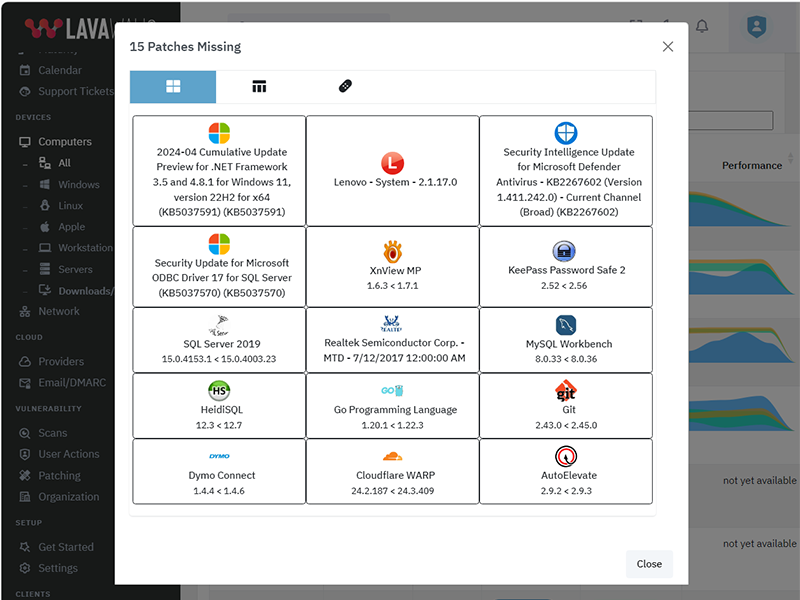
The above listing includes products that Lavawall® monitors through public information and/or proprietary statistical analysis.
Although we do have a partner relationship with some of the listed products and companies, they do not necessarily endorse Lavawall® or have integrations with our systems.
Learn More

Flexible Term; Flexible Service
Flexibility for your dynamic business
You need to get your arms around compliance and security and don't want to get locked into “high watermark” monthly invoices or multi-year contracts.
Pay-as-you-need monthly pricing
DIY, full management, and coaching options
CMMI, PCI, SOC2, Canadian Cybersecurity, Minimum Viable Secure Product, and other compliance support
Choose the plan that's right for you
Simple pricing. No hidden fees. Advanced features for you business.
Month
Annual
Get 2 months free with Annual!
DIY
Security-focused RMM
C$3.25 /computer/Month
C$32.50 /computer/Year
-
1 computer
or 1 of the following cloud integrations:
AWS, Axcient, Connectwise, Datto, Google, Huntress, M365, Sophos Central integrations
(each integration counts as 1 computer) -
150+ application patches
-
30-day Logs
-
Security configuration monitoring
-
Anomaly detection
-
CMMI, MVSP, CyberCanda compliance
-
Lavawall® support
-
Sophos MDR: C$13.50/desktopSophos MDR: C$162/desktop
-
Huntress: C$5.40/deviceHuntress: C$64.80/device
-
Available white-label support for end users
-
Level 3+ IT support for IT
-
Weekly IT coaching sessions
Managed Security & Support
Unlimited end-user support
C$160 /user/Month
C$1,600 /user/Year
-
1 computer/user
Additional devices charged at DIY prices -
AWS, Axcient, Connectwise, Datto, Google, Huntress, M365, Sophos Central integrations
-
150+ application patches
-
90-day Logs
-
Security configuration monitoring
-
Anomaly detection
-
CMMI, MVSP, CyberCanda compliance
-
Lavawall® support
-
Sophos MDR Essentials
-
Huntress
-
White-label email and phone support for end users
-
Level 3+ IT support for IT
-
Weekly IT coaching sessions
-
Automatic discount and upgrade to Support & Coaching after 15 users
Support & Coaching
Improve your IT performance
$2,250 /Month
$22,500 /Year
-
25 computers included
Additional computers charged at DIY prices -
AWS, Axcient, Connectwise, Datto, Google, Huntress, M365, Sophos Central integrations
-
150+ application patches
-
90-day Logs
-
Security configuration monitoring
-
Anomaly detection
-
CMMI, MVSP, CyberCanda compliance
-
Lavawall®-only support
-
Sophos MDR Essentials
-
Huntress
-
White-label email and phone support for 15 users included Additional: C$150/user Additional: C$1,500/user
-
L3 IT support for IT
-
Weekly IT coaching sessions
Frequently Asked Questions
If you can not find answer to your question in our FAQ, you can always contact us or email us. We will answer you shortly!
General Questions
- Two years after a missing Plex Media Server led to the LastPass breach, the
Remote Monitorign and Management (RMM) tools availabel for Manged IT Service Providers (MSPs)
still didn't monitor for it.
Going through industry-specific applications, we noticed many were missing from the big RMM and patching providers. MSPs, insurance providers, and organizations that put their cleints at risk need to know about these risks, which lead to the largest number of critical audit findings and breaches - After 20 years of writing the same audit findings about system configurations, Payment Card Industry (PCI) compliance, and missing patches, our technical co-founder wanted to make it easier fo avoid these findings
- The existing risk visibility tools for insurance underwriters took a shallow look at Internet-facing risks. They -- along with all businesses -- need a deeper view of the threats that could actually lead to breaches.
- Domain risks
- Operating System (OS) patches
- Application patches
- Network vulnerabilities
- Cloud vulnerabilities
- OS configurations
- Axcient*
- Cloudflare
- Connectwise Screen Connect
- Datto RMM
- FreshDesk*
- Huntress
- Microsoft 365
- Panorama9
- ZenDesk
You can use your own logo for the console and notifications. You can also use a CNAME to automatically brand your console.
Note: you cannot currently re-proxy the CNAME to Lavawall® through Cloudflare.
Privacy & Security
However, we do allow passwords and use passwords as part of the zero-knowledge encryption for your clients' sensitive data, such as Bitlocker keys and Personally-Identifiable Information (PII).
These passwords use Argon2id slow hashes with individual salts and peppers.
We have added an additional secure tunnel that mimics the TLS process within the public TLS tunnel. This extra tunnel provides authentication and privacy for the workstations and the Lavawall® servers to prevent attacks such as the one that took down Solar Winds.
Remote access is not enabled for read-only and audit situations.
Get In Touch
Have a quick question and don't want to talk? Send us a quick note with the form below and we'll reply within one business day.
NW Calgary:
ThreeShield Information Security Corporation
600 Crowfoot Crescent N.W., Suite 340
Calgary, Alberta
T3G 0B4
SE Calgary:
ThreeShield Information Security Corporation
105, 11500 - 29th St. SE
Calgary, Alberta
T2Z 3W9
Canada

